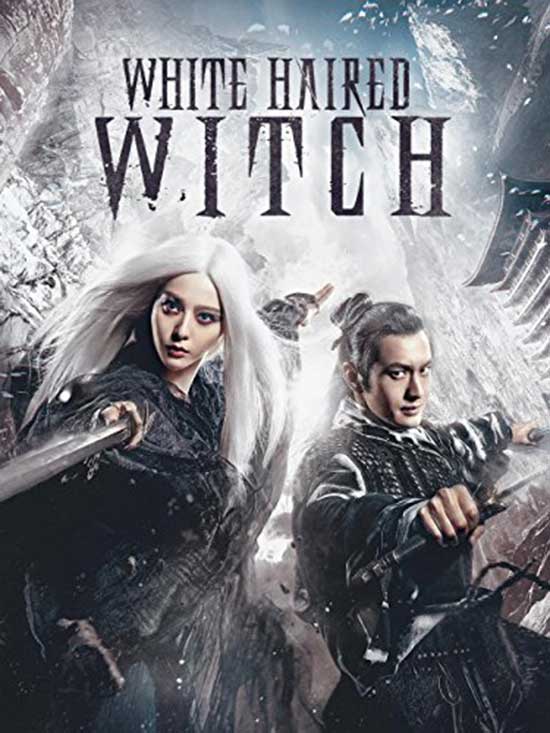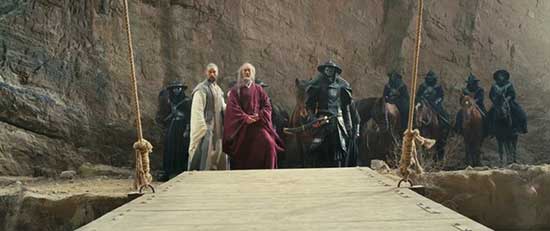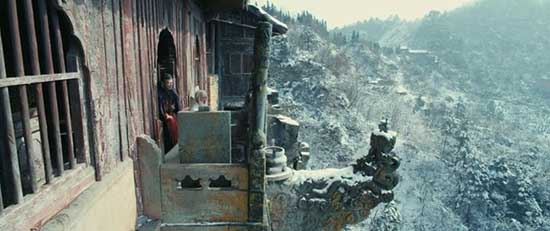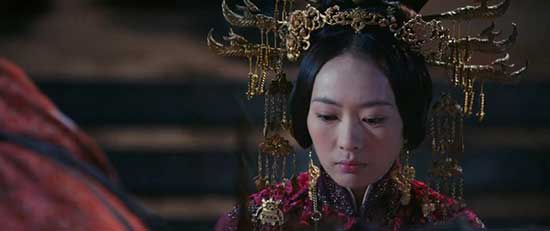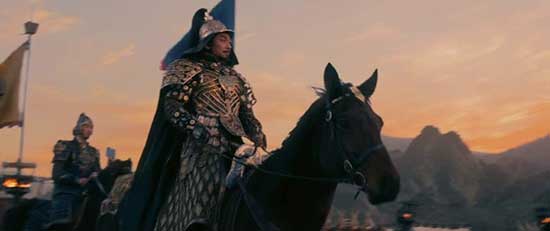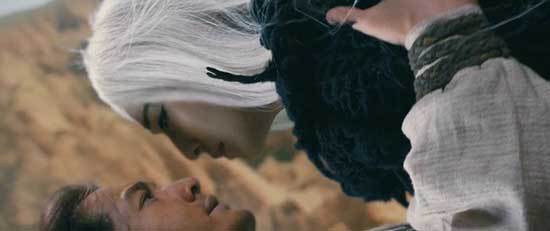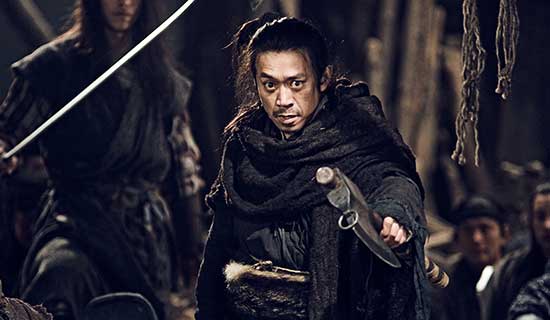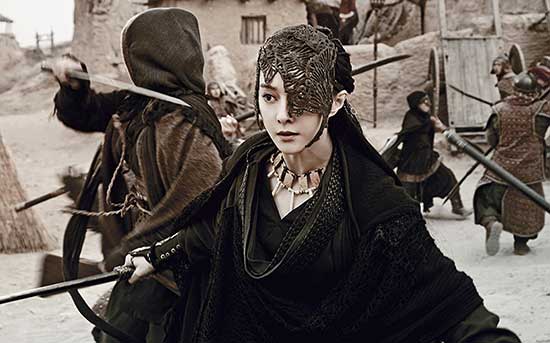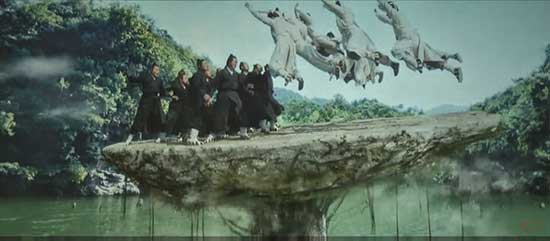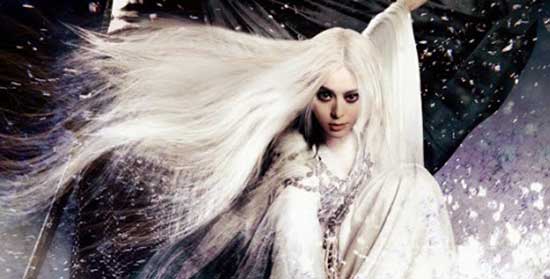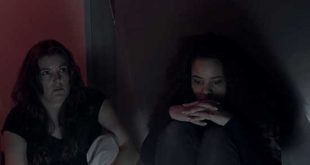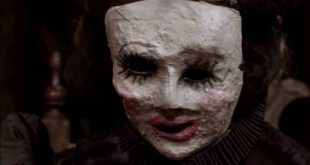SYNOPSIS:
In the twilight of the Ming Dynasty, the Imperial court is plagued by corruption as tyrants rule over the land. With the Manchurians preying on a weakened empire, war is imminent. To save the victims from their suffering, sorceress Jade Raksha fights the soldiers that oppress people for their own gain. As payback, local government officials decide to pin the murder of Governor Zhuo Zhonglian on Jade, turning her and the members of her cult into wanted fugitives for a crime they didn’t commit.
REVIEW:
I believe every cinephile, no matter how cultured and varied their tastes, has at least one genre of film that they avoid at all costs. For most people, that genre is horror, for pretty obvious reasons. For me, it’s romance and war movies—and ever the twain shall meet, since most war movies involve a romantic plot and plenty of romances take place during times of war. But as they say, the exceptions make the rule, and there are always exceptions when it comes to movies.
White Haired Witch of the Lunar Kingdom takes place sometime around the end of the Ming Dynasty, where politics are simply frothing with corruption, and nearly every man who holds a title seems to be involved in their own plots to sabotage their superiors. As in all times of political unrest, the common people are the ones to suffer—imperial soldiers regularly abuse the starving communities they’re supposed to be feeding, and the royals couldn’t care less about the dirty little villages that pepper the landscape. Enter Jade Raksha, an elusive outlaw and all-around dangerous woman, who has taken it upon herself to protect the poor from the royal bullies, and has set up a sanctuary in her own territory known as Fort Luna. She and her followers are the only thing standing between the evil royals and their callous agendas for domination.
Yihang is a young man freshly elected to the head of Wudong, a royally-aligned city that distributes medicine around the country. He is tasked with delivering The Red Pills to the ailing emperor. On his way to the palace, he stumbles upon a grotto occupied by a lone swordswoman (obviously the notorious Jade Raksha), and they proceed with a flirt-fight that seals them together as the romantic leads. Yihang reaches the palace and presents the Pills, but due to a plot by the royal advisor, the Pills never get to the emperor and he dies—Yihang is charged with poisoning the emperor in the so-called Red Pill Incident. Later, Jade Raksha’s gang intervenes during a siege on a poor village, and Jade is framed for the murder of the governor (who just so happens to be Yihang’s grandfather). Both perceived enemies of the crown, the two join forces to empower their followers and conceive a plan to overthrow the corrupted officials and clear their names, and maybe even discover the meaning of love.
White Haired Witch is not necessarily a clumsy film, but it is rather unbalanced. The nature of the story is very episodic, meaning that my little plot synopsis doesn’t even touch half of the plot twists that happen during the runtime. The fight scenes are fast and furious, while the love scenes are understated and lovely, but everything in between spins between too much information and not nearly enough. The war story frequently bumps up against the love story, and they constantly overlap and fight for attention, despite the elements involved that would naturally mesh them together.
The blame for this most likely lies with five screenwriters attempting to put a new spin on Liang Yusheng’s classic novel by cherry-picking the original story and adding several new and often largely useless subplots. Many of these tangents involve the mechanics of war, a constantly shifting chessboard of characters where corrupt leaders orchestrate double-crosses before you can realize what the initial relationship was. As it drags on, one gets the feeling of all seven seasons of Game of Thrones packed into an hour and forty minutes. There are simply too many moving pieces and too many thwarted alliances to properly keep track, unless you have done your history homework.
This is not to say that White Haired Witch isn’t enjoyable, and the credit for that goes to the love story. If you manage to blot out the intricate flow chart of who-hates-who in this Ming-flavored game of Risk—at least enough to understand what’s going on–then there is quite a lovely little romance happening in the background. Yihang presents himself as highly skilled and pretty cocky, but he is actually quite humble and seems to understand his own boundaries (when he is handed his leadership title, he instantly objects that he doesn’t feel he is mature enough for the responsibility), as well as an inherent compassion for others and the willingness to “sacrifice [himself] for the bigger picture.” He accepts the various quests given to him with nobility and grace, even the ones that threaten to drag his name through the mud, if it means benefiting the greater good.
But the star of this show is our title character, the mysterious White Haired Witch, who doesn’t even earn her namesake until halfway through the film. Jade is a badass chick in the best way—beautiful, dangerous, and cold as a winter morning. She icily declines Yihang’s attempts at romancing her, determined to learn from the mistakes of her master who died of a broken heart. But eventually, his charm, compassion, and genuine goodness gets to her, and she inevitably falls for him even if it means making herself vulnerable. When she finds him with another woman—an arranged marriage subplot that isn’t worth getting into—she is so devastated that her hair turns white and she nearly dies, but once again Yihang proves his devotion and brings her back from the grave. When she unleashes her true abilities and claps back on the men who seek to capture her and kill her lover, she is an unstoppable force that might as well be scored to a Nicki Minaj “bad bitch” power anthem—even if this power comes at a heartbreaking price.
I’ve spoken before about Fan Bingbing and how quickly I fell in love with her in League of Gods, but White Haired Witch really gives her time to shine. Even when Jade refuses to show emotion, Fan’s performance betrays her true feelings with delicate and deeply felt pathos that brought real tears to my eyes more than once. This is not even mentioning her spectacular martial arts skills and the fearsome way she swings a sword. Truly, Fan Bingbing is a radiant star of Chinese cinema, and at this point I’m willing to sit through anything just to watch her work.
Despite some obvious issues in the writers’ room, White Haired Witch of the Lunar Kingdom is still a very enjoyable film, with enough flashy action and genuine human emotion to keep the duller espionage subplots chugging along. And again, coming from someone who usually rolls their eyes at any attempt of romance, the love story really works for me and is the strongest asset in this otherwise confused film. As long as you can keep track of the military movements enough to get a grasp of what’s at stake, the romance is well earned and ends as happily as anything this bleak possibly could.
 Horror News | HNN Official Site | Horror Movies,Trailers, Reviews
Horror News | HNN Official Site | Horror Movies,Trailers, Reviews
